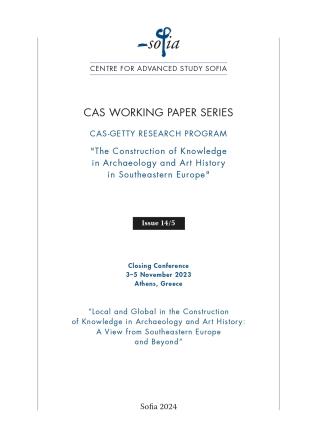Polish Archaeologists in the Face of the Totalitarian Systems of the Twentieth Century: Nazism and Stalinism. Choices to Make, Lessons to Learn
Polish Archaeologists in the Face of the Totalitarian Systems of the Twentieth Century: Nazism and Stalinism. Choices to Make, Lessons to Learn
Author(s): Paulina FlorjanowiczSubject(s): History, Archaeology
Published by: Centre for Advanced Study Sofia (CAS)
Keywords: ideology and science; political archaeology; social value of heritage; totalitarian influence; colonial approach; Nazism; Stalinism; historical materialism in archaeology; ethics; resistance
Summary/Abstract: The aim of this paper is to examine the attitudes of Polish archaeologists towards both types of imposed totalitarianism: Nazism and Stalinism, and to demonstrate the consequences of their choices on the development of this academic discipline in Poland. The analysis reveals that Nazism did not leave a lasting mark on Polish archaeology and that Polish archaeologists unequivocally rejected collaboration with the German occupiers. The nature of the Soviet Russian occupation differed from Nazi Germany’s colonial approach, and some scholars saw in Marxism a potential for the development of archaeology, while others firmly rejected it. Overall, this trend and the historical materialism associated with it were largely superficial. Furthermore, the authorities of post-war Poland, like those in the interwar period, did not perceive any propaganda potential in archaeology, and the few instances in which the state did become involved were initiated by the archaeologists themselves, albeit with varying motivations.
Journal: CAS Sofia Working Paper Series
- Issue Year: 2024
- Issue No: 14/5
- Page Range: 37-58
- Page Count: 22
- Language: English

